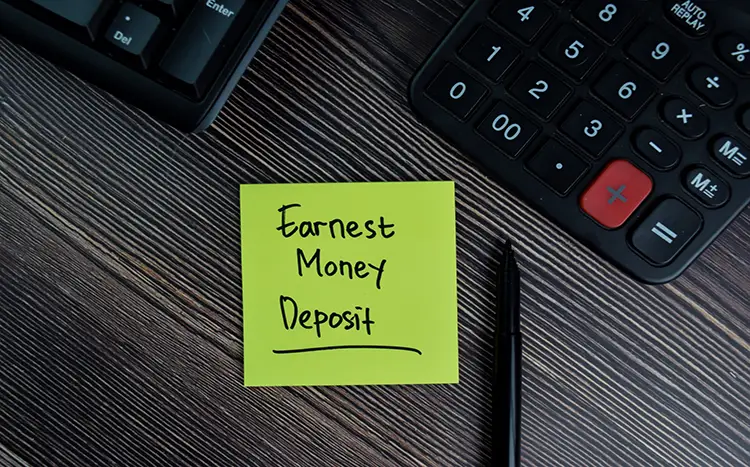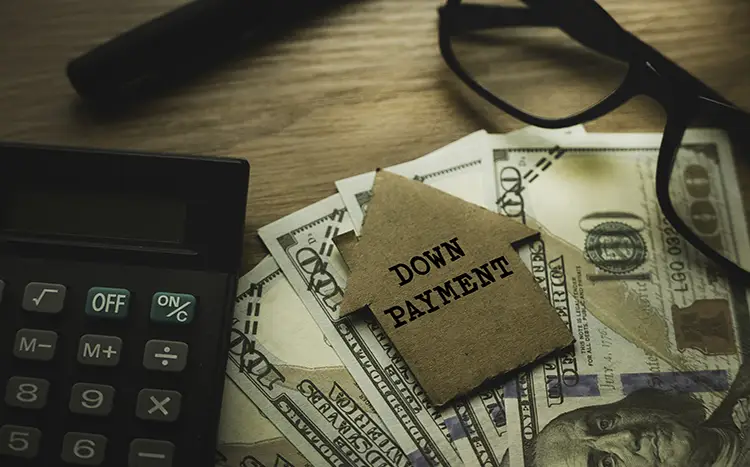Earnest Money and Down Payment: What's the Difference?
Published on December 5, 2023 | 4 Minute read

Melanie
Ortiz Reyes
Content Specialist
Embarking on the journey to homeownership is a profound and exciting step, but it comes with a myriad of financial intricacies that can leave prospective buyers feeling perplexed. Among the often-confusing terminology are "earnest money" and "down payment," two critical components in the real estate transaction process. Let’s unravel these terms:

What is Earnest Money?
Earnest money is the initial monetary offering that accompanies a buyer's offer to purchase a property. Serving as a "good faith deposit," earnest money demonstrates the buyer's genuine intent to proceed with the transaction. Typically ranging from 1-2% of the home's purchase price, this deposit is held in escrow until the closing, at which point it is applied towards the down payment or closing costs.
The Purpose of Earnest Money
Demonstrating Commitment:
- Beyond a financial transaction, earnest money is a symbolic gesture showcasing the buyer's commitment to the deal. This commitment can strengthen the buyer's offer in a competitive market.
Compensation for Seller:
- Earnest money acts as compensation for the seller in case the buyer defaults without valid reasons. It compensates the seller for taking their property off the market.
Applied Towards Purchase:
- In a successful transaction, the earnest money is a crucial part of the buyer's financial contribution and is typically applied towards the down payment or closing costs.

What is a Down Payment?
A down payment is a more substantial upfront payment made by the buyer directly towards the property's purchase. This amount is a percentage of the home's total price, and it is not held in escrow like earnest money. The down payment is a significant financial commitment that builds equity in the property from the onset.
The Purpose of Down Payment
Equity Building:
- Making a down payment contributes to equity, representing the portion of the home's value owned by the buyer. This equity builds from the first payment and grows as the mortgage is paid down.
Risk Mitigation for Lender:
- A down payment mitigates risk for the lender, reducing the loan-to-value ratio. A lower ratio often results in more favorable loan terms, including lower interest rates for the buyer.
Meeting Lender Requirements:
- Lenders typically have minimum down payment requirements based on various factors, such as the type of mortgage and the creditworthiness of the buyer.

How Earnest Money and Down Payment Interact
While earnest money is a symbolic commitment and a part of the initial offer, the down payment is a more substantial financial contribution made later in the home buying process. Earnest money is typically applied towards the down payment or closing costs, making it an integral part of the overall financial arrangement.
Negotiation and Contingencies:
- Buyers can safeguard their interests by incorporating contingencies in the purchase agreement when providing earnest money. These contingencies might include provisions for inspections, securing financing, or the successful sale of the buyer's current home.
Market Trends and Financing Options:
- Understanding current market trends is crucial, as they can impact negotiation dynamics and the competitiveness of your offer. Additionally, exploring various financing options, such as government-backed loans or first-time homebuyer programs, can influence the structure of your earnest money and down payment.
The journey to homeownership involves a comprehensive understanding of earnest money and down payments. While earnest money is a symbolic commitment that showcases your intent, the down payment is a tangible financial contribution that builds equity and secures favorable loan terms. By unraveling the distinctions between these terms, prospective homebuyers can navigate the real estate landscape with confidence, ensuring a sound and successful transaction that paves the way to their dream home.